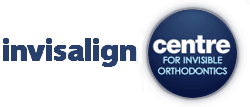Your body works like a finely tuned machine – each system plays an important role in ensuring the others function properly. The way your oral health plays into your overall well being is especially important. When everything is working correctly, patients enjoy lasting oral and overall health. However, it doesn’t take much for an oral issue to start affecting the rest of the body.
Much like gum disease, malocclusion can have a lasting impact on your overall well being beyond the aesthetics of your smile. Crowded teeth, overbites, underbites, and gaps between teeth can all lead to serious dental and overall health problems if left untreated.
Solving Overall Health Problems with Braces
Luckily, orthodontic treatments like traditional braces and Invisalign are excellent options for patients with any degree of malocclusion. Some of the health benefits of braces include:
Decreased Chance of Tooth Decay and Gum Disease
Crowded teeth or large gaps in the smile create extra spaces where bacteria and plaque can become trapped. This makes it harder for even the most diligent patients to thoroughly clean between and behind teeth. As a result, patients with crooked smiles are often at a higher risk of developing cavities and gingivitis. By straightening teeth with braces, these hidden spaces are removed, improving your ability to keep teeth clean and healthy.
Lowered Risk of Bruxism, TMJ Problems
Malocclusion is not only a major factor behind tooth decay – it also is a contributing factor behind bruxism (teeth grinding) and temporomandibular joint (TMJ) issues. When bite alignment is just a tiny bit off, it impacts how the mandible fits with the skeleton. As you bite and chew, pressure is unevenly distributed across the teeth, leading to uneven wear as well as a higher likelihood of nighttime teeth grinding. By creating an even bite alignment, orthodontic treatments like traditional braces and Invisalign help ensure better pressure redistribution and alleviate the pressure caused by TMJ issues.
Malocclusion & Sleep Apnea
Just as poor bite can have a negative impact on jaw health, it can also contribute to the development of sleep apnea. Obstructive Sleep Apnea (OSA) a serious breathing condition in which patients stop breathing at night because of airway obstruction. While this is common in middle aged patients, children with severe malocclusion and mouths that are too small are also at risk of developing sleep apnea.
Phase I and Phase II braces are often the recommended solution for kids with sleep apnea as this form of orthodontics allows our Miami orthodontist to better shape jaw development. Ultimately, using intervention braces helps children who are still growing enjoy improved oral and overall health in the future.
Mental Health and Malocclusion
In recent years, greater focus has been placed on the psychological impact of oral health and aesthetics on patients. In the case of bite misalignment, numerous studies throughout the world in the last few years have paid close attention to how crooked smiles have created a desire for young adults to pursue braces for cosmetic treatment.
In one study published in the South African Dental Journal in 2016, it was determined that malocclusion in men in their late 20s were more likely to suffer from lower self-confidence and negative psychological well-being because of the appearance of their smile. A larger study conducted in China among undergraduate students found that there was a stronger desire for female young adults to correct bite misalignment, which was then correlated to higher instances of negative self-perception.
While these results may not be all that shocking, they point to a changing mentality in how the look of a smile can seriously compromise a patient’s self-confidence and self-perception. They also signal a change in when patients are getting braces. As the Chinese study directly points out, patients are now more likely to pursue orthodontics or Invisalign for aesthetic or quality of life reasons rather than to just improve their oral health.
Do I Need Braces?
Very few people are born with perfect smiles. However, the priority of “when you need braces” varies significantly from one individual to another. In some patients, a slight canine rotation would require a more cosmetically oriented treatment strategy. In others who suffer from severe overbite or crowding throughout the mouth, traditional orthodontics is necessary to protect the dentition from more serious oral health issues.
The best way to learn if you need braces is to schedule a consultation with an experienced orthodontist. These specialists have trained extensively to identify the underlying issues behind your unique case of malocclusion and can create comprehensive strategies for addressing these problems. In Brickell, Dr. Stephen Grussmark is an experienced orthodontist who has helped countless patients of all ages improve their oral and overall health. If you’re ready to schedule an appointment, call our Brickell orthodontist today!

